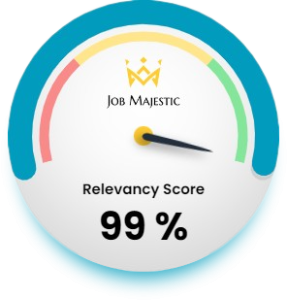Thinking about resigning after bonus? It’s a tough decision, right? Feeling a bit guilty about leaving right after the bonus is common, but sometimes it’s necessary for personal growth. The process involves ethical considerations, aligning with your work goals, and dealing with the practical side of changing jobs. This article delves into whether it’s the right time to resign after a bonus, identifies signs it might be, and outlines important things to think about before handing in your resignation letter.
Is it ethical to resign after bonus?
Ethical Considerations
The ethical dilemma lies in the time of the resignation in relation to the payment of the bonus. Take a look at this:

1. Personal Ethics
Your decision should be in line with your moral principles. Of course, besides being accountable to yourself, employees also need to consider their career prospects. After all, the company has its own development goals, and if they align with your career objectives, both parties can benefit from the collaboration. However, personal and corporate goals may not always align at every stage, and that’s when it’s time to bid farewell to the company and seek the next opportunity.
2. The Intent Behind The Bonus
Bonuses are usually given as a recognition of past performance but can also suggest an expectation of ongoing commitment. However, before joining, the company’s expectations for employees are clearly outlined. For instance, the required skills, post-entry responsibilities, assigned business areas, and team roles are explicitly stated. Therefore, as long as you excel in your job, ensuring your pay is commensurate with your efforts is the key.
Thinking about resigning after a bonus? Explore the ethical considerations and ensure your decision aligns with both personal and professional goals.
When is it time to leave your job?

6 Signs it’s time to quit your job
Leaving a job should be a well-considered decision. Here are some signs that it might be time to move on:
1. Lack of Professional Growth
If you’ve been in your current position for a considerable amount of time and find that your career isn’t progressing significantly, you may feel boredom and dissatisfaction. In such situations, it might be worthwhile to explore other job opportunities that offer potential for career development and growth.
2. Work-Life Imbalance
If you find yourself overwhelmed by a heavy workload, struggling to cope, or experiencing adverse effects on your health and overall quality of life due to excessive work pressure, it could be a signal that it’s time to consider resigning.
3. Misalignment with Company Values
If the company’s culture or ethics conflict with your own, staying might not be sustainable in the long term.
4. Underutilization of Skills
Feeling that your abilities are not being fully utilised or recognized can lead to job dissatisfaction.
5. Toxic Work Environment
If you find yourself in an unfavourable work environment, characterised by conflicts among colleagues, workplace safety concerns, or issues with management styles, it can impact your efficiency and productivity. If the working conditions do not improve, it may be time to explore alternative job opportunities.
6. Dissatisfaction with Current Salary
If your salary doesn’t align with your expectations or industry standards, you may feel discontented. If you’ve already discussed the salary matter with your employer without a satisfactory resolution, it might be time to explore alternative job opportunities.
What to do before quitting / submitting the resignation letter?
Before submitting your resignation letter, it’s crucial to consider a few essential steps. Learn what you should do beforehand to ensure a smooth transition and maintain professionalism in the workplace.

Steps to take before quitting:
1. Financial Preparedness
Check your current money situation by looking at your savings, investments, and upcoming bills. Figure out how long you can support yourself without a regular income. Think about putting some money aside for unexpected expenses during the transition. Also, try to find a new job or another way to make money before officially quitting.
2. Review Employment Contract
Thoroughly go through your job contract to know about resignation terms like notice periods and non-compete rules. Make sure you understand your obligations. If there’s any legal stuff you’re unsure about, consider talking to a professional for advice.
3. Professional Networking
Build stronger ties in your industry by going to events, online forums, or seminars. Keep your LinkedIn profile updated with your latest achievements and connect with people in your field. Discreetly share your plans with trusted colleagues; they might help with job leads or references.
4. Reflect on Career Goals
Reflect on your future career goals and personal values. Consider your career growth aspirations and what you want in your next step. Identify the skills you want to learn and roles that align with your passions.
5. Seek Advice
Can try to talk with mentors, colleagues, or a career coach about your decision. Get advice on the challenges and opportunities ahead. Take constructive feedback to improve your approach to the upcoming career change.
6. Prepare for The Transition
Make a list of your main responsibilities and highlight crucial projects, ensuring there’s a plan for them to continue smoothly. Create detailed notes on your daily tasks and processes, making it easier for the person taking over to understand and manage efficiently. Talk to your team about your departure, discussing the transition plan to make sure everyone is on the same page regarding the handover process.
7. Drafting a Resignation Letter
Maintain a professional and positive tone in your resignation letter, expressing gratitude for the opportunities and experiences you’ve had with the company. Keep the content concise, highlighting key points such as your last working day and your willingness to assist during the transition. If relevant, add a personal touch by mentioning specific positive aspects of your experience, leaving a favourable final impression.
Can read more about How to Draft a Resignation Letter with templates.
8. Exit Interview
Provide honest feedback during the exit interview, openly sharing your reasons for leaving. If offering constructive criticism, present it diplomatically, focusing on areas for improvement. Balance your feedback with positive remarks, emphasising the aspects you appreciated during your time with the company. Express your willingness to maintain positive relationships and stay connected even after leaving, fostering valuable professional connections.

If you’re ready to start a new chapter in your career, discover exciting opportunities on our platform, www.jobmajestic.com. It’s the ideal place to find your next job and take the first step toward a fulfilling professional journey. Our (TRAIN) AI-driven job recommendations match job seekers’ profiles and preferences with relevant job openings.
Summary
Deciding to quit a job after receiving a bonus is a complex decision. It requires evaluating your personal ethics and assessing if it aligns with your career goals and readiness for change. By carefully thinking about the implications and taking thoughtful steps to prepare, you can navigate this transition responsibly and confidently.







